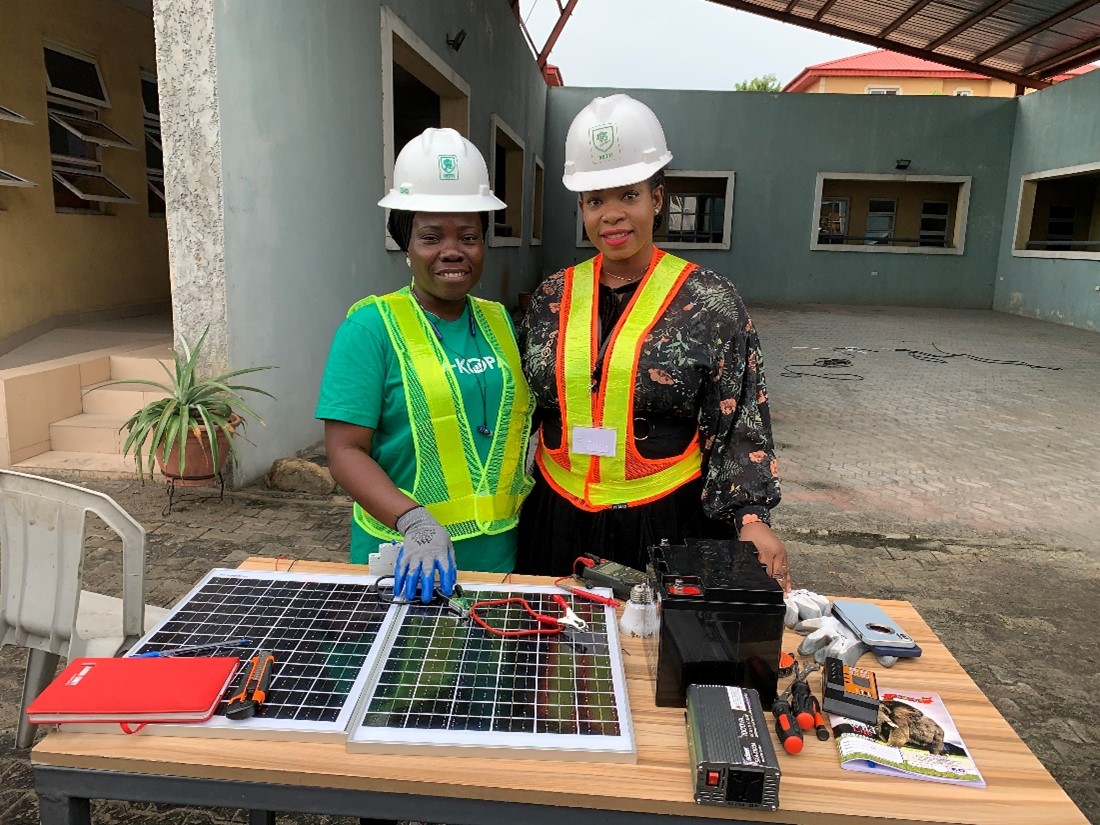
Invest in Youth to Ramp Up the Clean Energy Transition
Today is the United Nation’s International Day of Education, and there is no better time to highlight the importance of investing in our youth. Young professionals make up more than 25 percent of the global workforce. Young people can drive change, accelerate climate solutions, and are critical to the energy transition. Channeling funding to opportunities and programs for young professionals to gain hands on experience in the energy sector is paramount to achieving global net-zero targets.
For Oluwadabira Abiola-Awe, ventures and capital campaign associate at Student Energy, empowering young professionals as leaders in the energy transition is key to achieving universal energy access and a net-zero path for the future. “Investing in young people will accelerate the path to the energy transition,” she says. “We need millions of jobs in the renewable energy sector by 2030, and even more by 2050, and it is important to invest in the individuals who will be active members of the workforce as they will be critical to realizing the transition.”
Abiola-Awe and her colleagues at Student Energy work with an international network of more than 50,000 young people from 120 countries actively striving to develop a sustainable energy future and empower the young leaders who are critical to realizing this global change. “Young people are such powerful advocates for change, and with the skills, mentorship, support, and networks, they can spread their influence, ideas, and enthusiasm to advance renewable energy,” Abiola-Awe notes.
RMI’s Energy Transition Academy (ETA) is focused on capacity development — building the human and institutional talent to advance the energy transition — and is committed to working with partner organizations, such as Student Energy, to ensure an equitable transition. In 2022, ETA collaborated with Student Energy at the Sustainable Energy for All Forum in Kigali and at the Youth Energy Summit in Brussels, where RMI’s Global South Senior Director Raul Alfaro-Pelico participated in workshops and panel discussions on the power of storytelling as a communications tool, early career development, investing in Africa’s human capital, and building youth-centric metrics into energy investments. RMI also provided training sessions for Student Energy’s Career Training program.
As countries seek to decarbonize their economies, accelerate the energy transition toward net zero, and close the gap on rising unemployment trends, financial investments in technical skills development, hands-on training, and sector-specific educational opportunities for young professionals (between the ages of 18 and 35) become more important than ever.
The Growth of Green Jobs
Globally, the renewable energy sector, which currently employs approximately 12 million people, is estimated to increase to a workforce of 38 million by 2030 to meet global net zero goals. According to the International Energy Agency’s World Energy Employment Report released in September 2022, this job growth will include reskilling within the energy sector as well as the creation of up to 14 million new clean energy jobs, and the IEA highlights a current shortage of skilled workers as a barrier to achieving international climate targets.
The number of young people entering the labor market globally is also on the rise. As noted by the International Labour Organization (ILO), by 2030, up to 25 million young people between the ages of 15 and 29 will enter the global labor market.
This increase in youth entering the labor market is especially pronounced in countries in the Global South where youth comprise a significant portion of the population. In sub-Saharan Africa, 70 percent of the population is under the age of 30, presenting a significant demand on the economy for job creation.
The ILO sees the expanding green economy and renewable energy sector as having the potential to make a significant impact on filling this gap for youth employment. In its Global Trends for Youth 2022 report, the ILO estimates that globally up to 8.4 million new jobs for young people ages 15–29 could be created in association with a green transition.
As a call to action, at COP27 in Egypt this past November, the United Nations Environmental Programme, United Nations Children’s Fund, and the ILO launched the Green Jobs for Youth Pact, to empower young leaders, provide skills training, and create green job opportunities in developing countries.
Student Energy is among the signatories to the Green Jobs for Youth Pact and Abiola-Awe sees it as a progressive initiative with the potential to foster broader partnerships and encourage organizations to act on meeting the job needs of the future and providing training for young professionals.
Abiola-Awe also touched on the untapped potential of young people who can step in as a powerful workforce to lead and deploy minigrids, boost renewables, increase energy access, and meet global climate goals during the United Nations Development Programme’s Africa Minigrids Program launch event.
RMI is slated to release a report early 2023 on a green jobs’ framework, and has previously outlined some of the benefits for youth and a people-focused energy transition, as well as pathways and strategies to realizing green jobs in the Global South.
“For the energy transition to be just, the youth in the Global South need to be front and center of the conversation”, says Alfaro-Pelico. “The ETA is one of the many examples of RMI leveraging young voices. Our work in Africa shows that closing the continent’s electricity access gap with cleaner and cheaper renewable sources is possible when they are in the driver’s seat.”
Hands-On Training
Another leading organization providing training opportunities for young professionals in the renewable energy sector is the Renewable Energy Technology Training Institute (RETTI) based in Lagos, Nigeria. RETTI provides a variety of technical training programs including courses on solar photovoltaic system design, construction and installation, renewable energy management and finance, and a range of other clean energy topics. One of RETTI’s flagship programs, the Africa Fellowship for Young Energy Leaders provides training on renewable energy technologies for young Africans that are PhD Engineering students or practicing electrical engineers who are seeking to advance their career in renewable energy.
“Providing training and job opportunities for young professionals promotes faster adoption of clean energy and access to electricity through entrepreneurship,” says Glory Oguegbu, RETTI’s founder and CEO. “Investing in people to develop and update their skills also makes economic sense. It can reduce un- and underemployment in the energy sector, increase productivity, and improve standards of living.”

At RMI, the Energy Transition Academy is helping empower the next generation of energy leaders in the Global South by providing opportunities for hands-on skill development, peer-to-peer learning, site visits to renewable energy facilities, and study tours.
ETA’s Global Fellowship Program, is one such initiative, designed for energy professionals with varying levels of experience from young professionals to seasoned managers to gain hands-on project development and management training within the renewable energy sector. The fellowship program’s current offerings are focused on utility-enabled solar microgrid development in the Caribbean and Nigeria.
Among the young leaders in the fellowship program is Shiquoi Issac, a mechanical engineer and project manager with the US Virgin Islands Water and Power Authority. Issac highlights the importance of investing in young professionals noting, “When governments, organizations and companies invest in developing young leaders in the energy transition, it sends a message to those young leaders as well as the rest of the world that they are serious about the future. These young leaders are able to pioneer one of the most critical fields that exists while bringing new ideas to the forefront.”
Lorenza Carey, an ETA Fellow, engineer, and project manager for Bahamas Power and Light, is another emerging leader in the renewable energy sector in the Caribbean. Carey emphasizes the importance of mentorship and leadership opportunities for young professionals. “The commitment of various countries to utilize cleaner energy sources has solidified the beginning of a new era,” he says. “It’s imperative that the stakeholders view this energy transition revolution as a relay race. The senior professionals have begun the race. Still, it will be young professionals of today who will be in this race for another ten, twenty, or thirty years. The successful longevity of the clean energy transition relay race remains with the young professionals of today.”
On this International Day of Education, we should recognize the value of investing in young professionals to advance our collective goals toward a net-zero future. RMI’s Energy Transition Academy is committed to this, and we challenge other organizations to embrace youth as the leaders of today. If you are interested in funding clean energy programs and opportunities specifically designed for youth, please contact Jennifer Stokes, Managing Director of Development, at jstokes@rmi.org or Raul Alfaro-Pelico, Senior Director of the Energy Transition Academy, at ralfaropelico@rmi.org.


